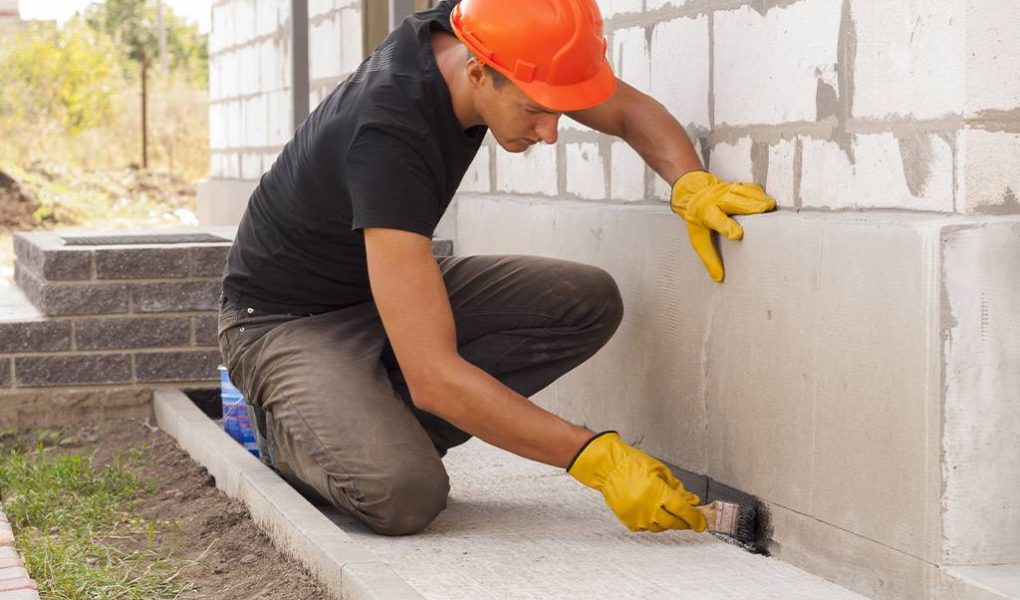Damp issues in homes are more common than many people think, and fixing them isn’t always straightforward. Whether it’s rising damp creeping up your walls, penetrating damp from outside, or condensation causing black patches, damp problems can damage your property and even affect your health. But how much does damp proofing cost? Here’s a simple guide to help homeowners understand the process, pricing, and what to expect when tackling damp in their homes.
What Is Damp Proofing?
Damp proofing is the process of preventing moisture from entering your home’s walls, ceilings, or floors. This can involve several damp proofing methods, including installing a damp proof course, applying chemical damp proofing, or using damp proof membranes. Each method is designed to control moisture levels and stop water from seeping into areas where it shouldn’t be.
According to the Property Care Association, untreated damp issues can lead to structural problems and encourage mold growth, which may trigger respiratory issues over time. This is why understanding damp prevention techniques is key before things get worse.
How Much Does Damp Proofing Cost?
The cost of damp proofing walls depends on several factors, including the severity of the issue, the treatment method, and the size of the area affected. On average, UK homeowners may spend between £70 to £250 per metre for damp proofing injection or a new damp proof course price installation. However, prices can vary widely based on your location and the type of work required.
Here’s a rough breakdown:
| Type of Damp Proofing | Average Cost Range |
|---|---|
| Chemical Damp Proof Course (DPC) | £70 – £150 per metre |
| Installing Damp Proof Membrane | £800 – £2,500 (depending on size) |
| Basement Waterproofing (Tanking) | £100 – £250 per square metre |
| External Wall Damp Treatment | £150 – £300 per metre |
| Damp Proofing Injection Cost | £75 – £150 per metre |
| Damp Survey Cost | £150 – £400 |
Always consult a damp specialist to get a detailed quote tailored to your property. These are estimated figures, and prices can go higher if significant repairs are needed.
Factors That Influence Damp Proofing Costs
1. Type of Damp Problem
The first step is identifying what type of damp you’re dealing with—rising damp, penetrating damp, or condensation. Rising damp treatment cost usually involves adding or repairing a damp proof course, while penetrating damp might require external wall damp treatment solutions.
2. Size of the Affected Area
The larger the problem area, the higher the damp proofing cost per metre. Small patches on one wall will cost less compared to widespread moisture damage throughout a home.
3. Severity of the Issue
If damp has already caused structural damage or if timber treatment is needed due to rot, expect the damp treatment cost to rise. Fixing the damage first adds to the overall price.
4. Access and Location
Properties with poor access or awkward layouts may require more labor, impacting the total price. Also, damp proofing prices can vary between cities and rural areas.
How Damp Proofing Works: Methods Explained
Chemical Damp Proofing
This involves injecting a water-repellent solution into your walls to stop moisture from traveling upward. The chemical damp proofing cost is often the most affordable option for dealing with rising damp in older homes.
Damp Proof Membrane
A damp proof membrane is a thick plastic sheet placed behind plaster or under floors to create a barrier against moisture. Membrane cost varies based on material quality and installation complexity.
Tanking
For basement waterproofing, tanking is the go-to solution. It involves applying a waterproof coating on the interior walls of the basement to keep moisture out. The tanking cost per square metre can be higher, but it provides solid protection for underground spaces.
External Wall Damp Treatment
If the damp is coming from outside due to cracks or damaged brickwork, external wall damp treatment solutions are needed. This may include repairing walls and applying water-resistant coatings.
Why Hiring a Damp Specialist Matters
Trying DIY damp treatments may seem tempting, but for serious issues, hiring a qualified damp specialist London homeowners trust is the best option. Local specialists often understand the unique challenges of properties in the area, especially when dealing with older buildings common across the city. These professionals use proper diagnostic tools like moisture meters and thermal imaging cameras to pinpoint the root cause of the problem. They can also provide a home damp inspection and offer reliable solutions that last.
The British Damp Proofing Association recommends choosing a specialist who provides a written guarantee for their work.
Is Damp Proofing Covered by Home Insurance?
In most cases, home insurance does not cover the cost of damp proofing walls unless the damp issue was caused by an insured event like a burst pipe. Regular wear and tear, or issues caused by poor property maintenance, are usually excluded. Always check with your insurer to understand what’s included in your policy.
How to Prevent Damp Issues in the Future
Investing in moisture control early on can save you from expensive repairs down the line. Here are a few damp prevention techniques to consider:
- Improve ventilation by using extractor fans and dehumidifiers.
- Keep gutters and downpipes clear to prevent water buildup.
- Repair any cracks in external walls.
- Check your building moisture protection regularly.
- Maintain a good damp proof course in older properties.
DIY Damp Treatments vs. Hiring a Professional
While some homeowners opt for DIY damp treatments, such as applying anti-damp paints or sealants, these methods may only offer a temporary fix. They might cover up the issue but won’t solve the root problem if the property damp issues are caused by structural defects or a failed damp proof course.
Hiring a damp specialist ensures the issue is correctly diagnosed and treated with proper damp proofing materials. Though the upfront damp survey cost adds to your expense, it can prevent repeated repair costs in the future.
Questions to Ask Before Hiring a Damp Specialist
- Are you certified by a recognized trade body?
- Do you provide a written guarantee?
- What damp proofing methods will you use?
- How long will the work take?
- Can you share references from past clients?
Getting clear answers helps you avoid unreliable contractors and ensures you’re working with a trusted professional.
Conclusion
Damp problems can quietly cause serious damage to your home if left untreated, but understanding how much does damp proofing cost and knowing your options puts you in control. The price you pay will depend on the type of issue, the treatment needed, and the extent of the damage. Whether you’re dealing with rising damp, penetrating damp, or condensation, hiring a qualified damp specialist can save you time, money, and headaches in the long run.
Make sure to get multiple quotes, ask the right questions, and always prioritize quality over quick fixes. Good waterproofing solutions and proper moisture control today can help keep your home safe, dry, and comfortable for years to come.




